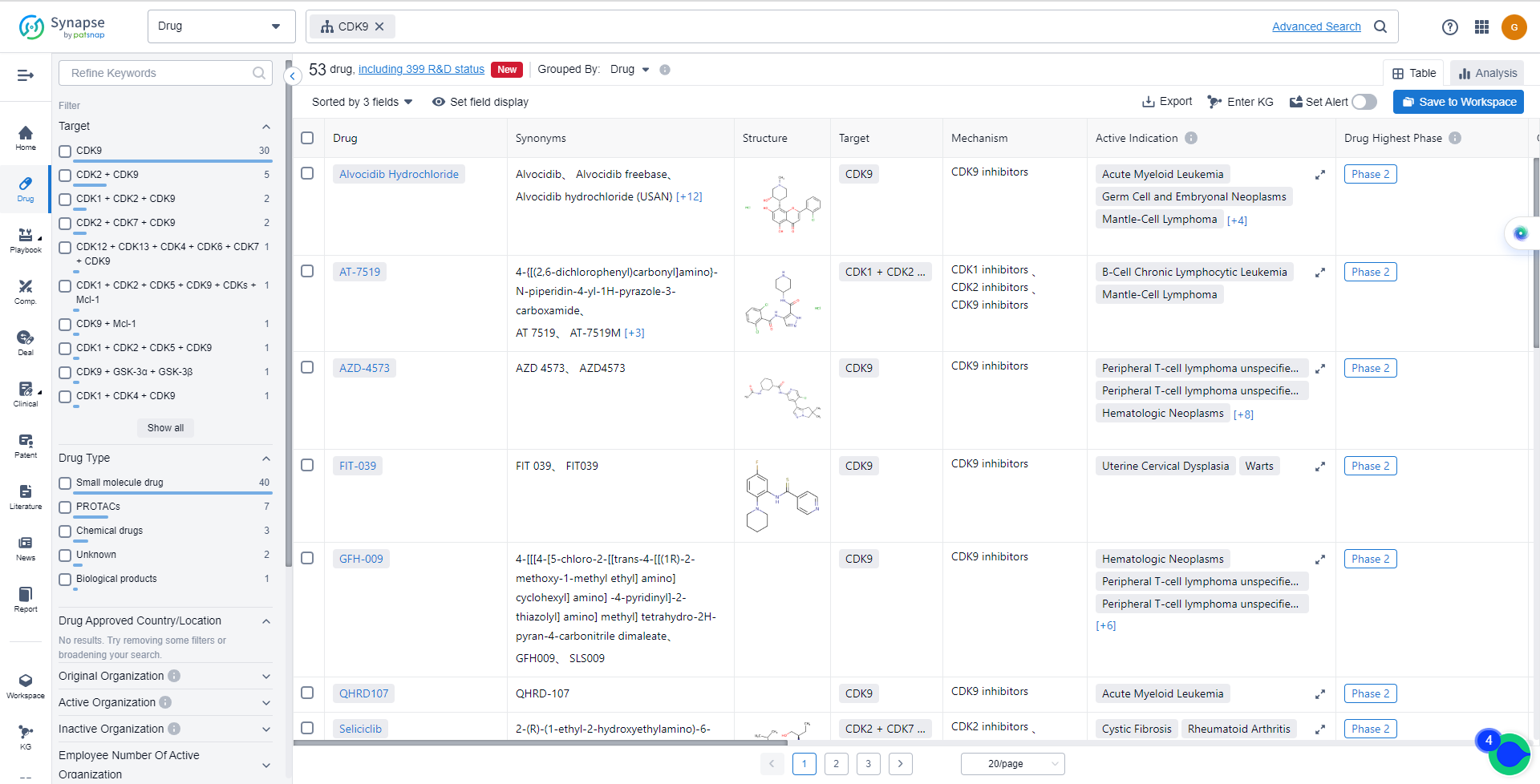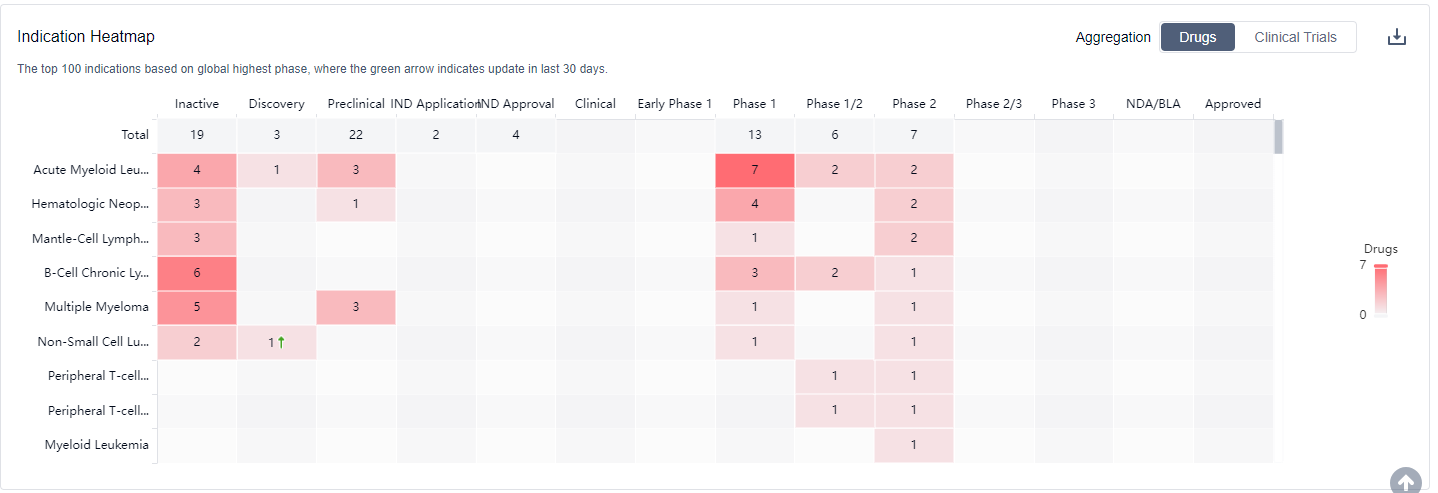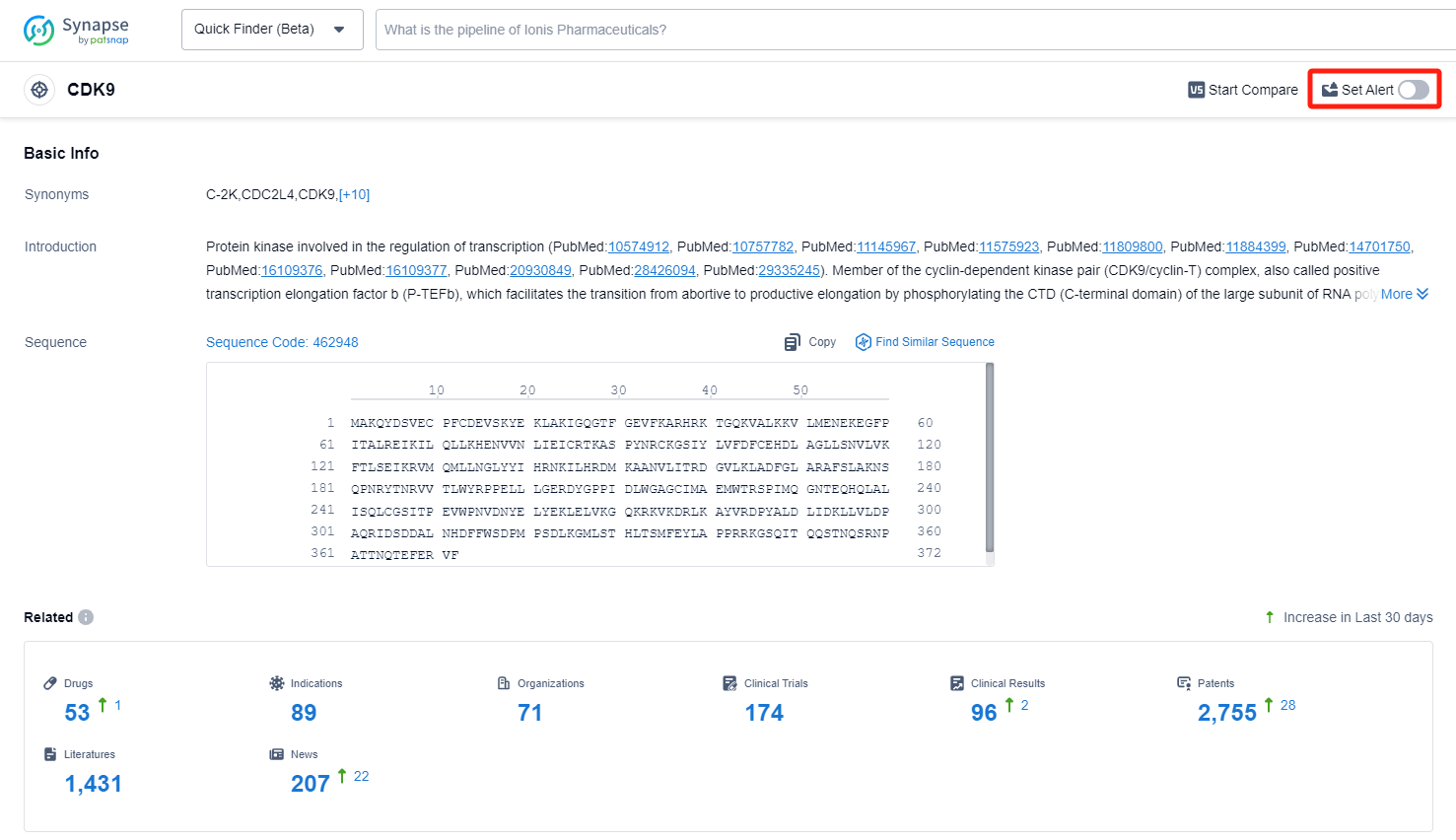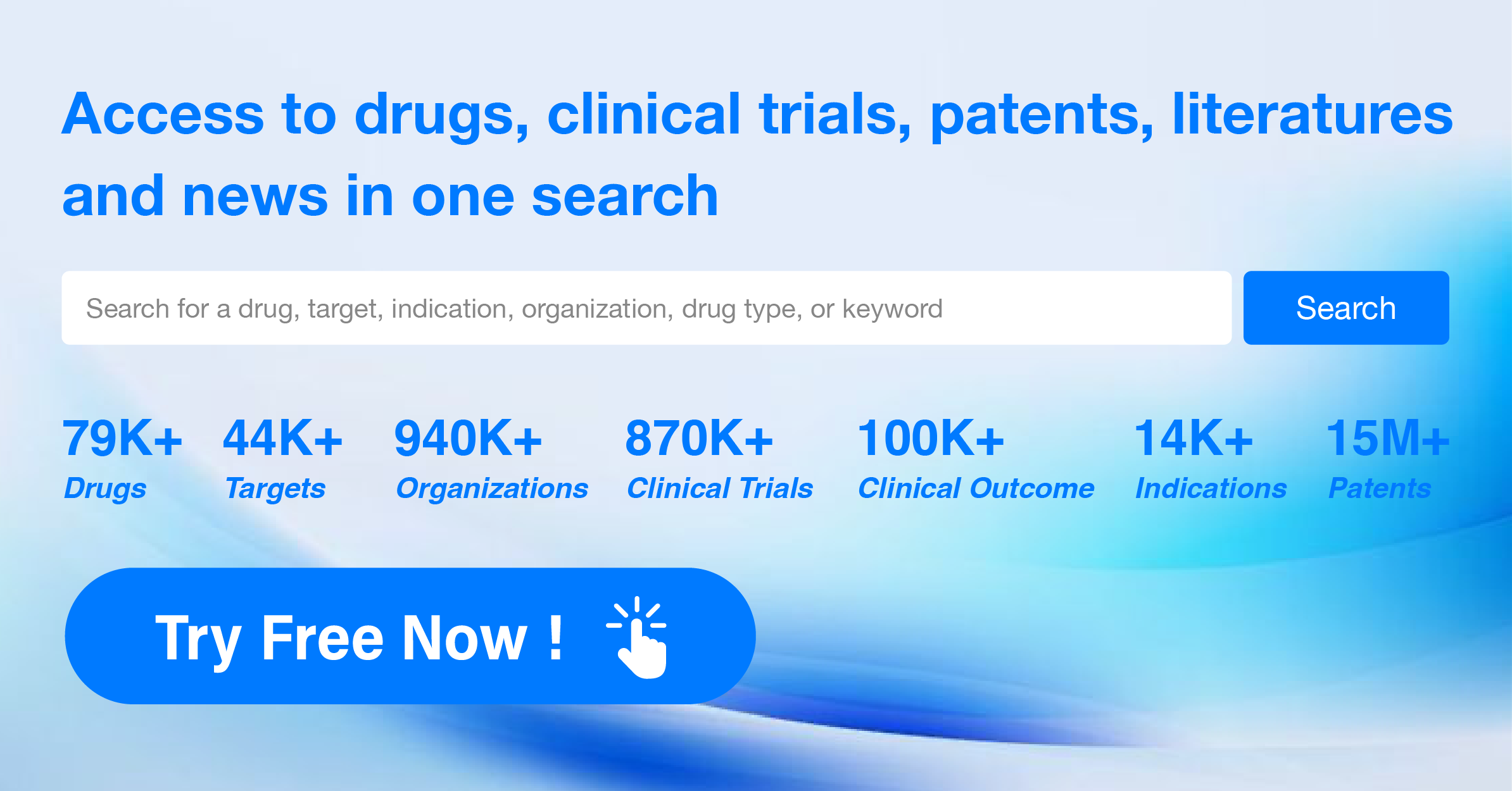What are CDK9 inhibitors and how do you quickly get the latest development progress?
CDK9, also known as cyclin-dependent kinase 9, plays a crucial role in the regulation of gene expression and cell cycle progression in the human body. It forms a part of the positive transcription elongation factor b (P-TEFb) complex, which controls the release of RNA polymerase II from promoter-proximal pausing, allowing for efficient transcription elongation. CDK9 also phosphorylates various transcription factors and chromatin-associated proteins, influencing their activity and promoting gene transcription. Additionally, CDK9 has been implicated in cell cycle regulation, apoptosis, and DNA damage response. Understanding the role of CDK9 provides valuable insights for the development of targeted therapies in the pharmaceutical industry.
CDK9 inhibitors are a potential direction for anti-tumor drug development, following the CDK4/6 inhibitors. Currently, several CDK9 inhibitors have entered clinical trial stages worldwide, as shown in the table below. Among them, AZD-4573, KB-0742, and others have entered phase 2 clinical trials. AZD-4573 is a CDK9 inhibitor introduced by AstraZeneca from Probiodrug, administered intravenously and mainly indicated for malignant blood system tumors, diffuse large B-cell lymphoma, and mantle cell lymphoma, among others.
The countries/locations developing fastest include the United States, European Union, United Kingdom, Canada, and several others. China has made some progress in the development of drugs targeting CDK9, but the number of drugs in Phase 2 is relatively low compared to other countries/locations.
Overall, the target CDK9 presents a competitive landscape with multiple companies and drug types involved in its development. The future development of CDK9 drugs will depend on the success of ongoing clinical trials and the approval of drugs for relevant indications.
How do they work?
CDK9 inhibitors are a type of drug that target and inhibit the activity of cyclin-dependent kinase 9 (CDK9). CDK9 is an enzyme that plays a crucial role in regulating the cell cycle and gene transcription. By inhibiting CDK9, these inhibitors can disrupt the cell cycle progression and prevent the transcription of certain genes.
From a biomedical perspective, CDK9 inhibitors have shown potential in the field of cancer research and treatment. Cancer cells often have dysregulated cell cycle control and increased transcription of genes involved in cell proliferation. By specifically targeting CDK9, these inhibitors can help halt the uncontrolled growth of cancer cells and potentially induce cell death.
CDK9 inhibitors have been investigated as a potential therapeutic option for various types of cancers, including breast cancer, leukemia, and solid tumors. They are often used in combination with other cancer treatments, such as chemotherapy or targeted therapies, to enhance their effectiveness.
It's important to note that CDK9 inhibitors are still under development and clinical trials are ongoing to evaluate their safety and efficacy. While they hold promise as a potential cancer treatment, further research is needed to fully understand their mechanisms of action and determine the optimal use of these inhibitors in clinical settings.
List of CDK9 Inhibitors
The currently marketed CDK9 inhibitors include:
For more information, please click on the image below.
What are CDK9 inhibitors used for?
CDK9 inhibitors have been investigated as a potential therapeutic option for various types of cancers, including breast cancer, leukemia, and solid tumors. For more information, please click on the image below to log in and search.
How to obtain the latest development progress of CDK9 inhibitors?
In the Synapse database, you can keep abreast of the latest research and development advances of CDK9 inhibitors anywhere and anytime, daily or weekly, through the "Set Alert" function. Click on the image below to embark on a brand new journey of drug discovery!








